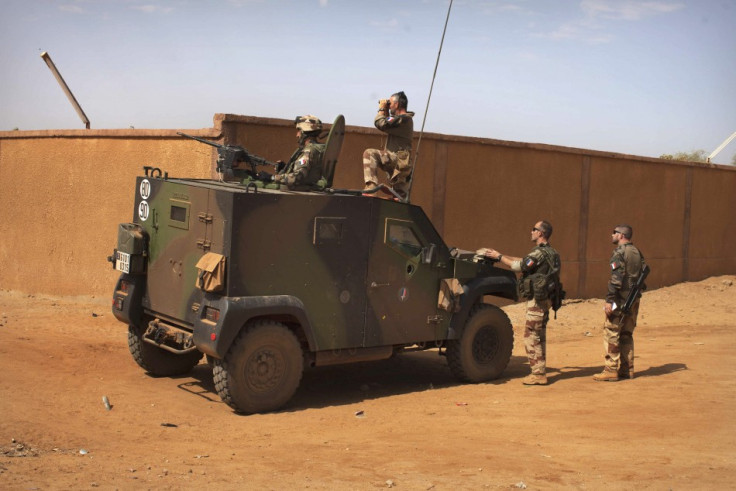Mali at War: Islamic Rebels Make Last Stand in Northern Mountains [VIDEO]
Defence minister Jean-Yves Le Drian says France will continue fighting 'to very bottom' despite huge cost

France's defence minister Jean-Yves Le Drian said "very violent fighting" is ongoing in Mali's northern mountainous region, near the Algerian border, and "many, many, many jihadists have died".
"We are now at the heart of the conflict," Le Drian said, adding that "we have entered their home base" in reference to the Adrar des Ifoghasn Mountains, where Islamist rebels fled after having been driven out from the main northern towns by French-led troops.
Le Drian dismissed suggestions from foreign minister Laurent Fabius earlier this month that France will begin pulling out its 4,000-strong contingent in early March.
"We will go to the very bottom of it [the conflict]," Le Drian told the radio, adding that the military operation has now entered a delicate stage as a "very meticulous action" is needed to free the "geographically and geologically complex" region from rebels.
"Our objective is to give back Mali its total territorial integrity, including these areas, which have been a shelter to rebel groups for a long time."
The minister said the presence of some of the at least 15 French nationals held hostage in northern Africa by Islamist groups in the area is "a working hypothesis."
Operation Serval in Mali has cost France more than €100m (£86m) since the country's troops began their offensive in January, according to defence minister Jean-Yves Le Drian.
AQIM Leader afraid of local outrage over Shariah punishments
Meanwhile a document jihadists left behind while fleeing Timbuktu has revealed al-Qaeda in the Islamic Maghreb (AQIM) leaders' concerns over the fast implementation of Shariah law during Islamist rule in northern Mali.
In a 79-page document published by RFI and Libération and dated July 20, 2012, AQIM head Abdel Malek Droukdel warned his subordinates against alienating the local population through the implementation of Islamic law punishments and the destruction of "idolatrous" shrines.
"You have made a serious mistake. The population might revolt against us and we can't fight an entire nation. You are jeopardising our [ruling] experience, our baby, our beautiful tree," Droukdel, an Algerian, wrote.
"Shariah law dictates lashing for adultery, but we must first awake public opinion and educate it to Islam. Then we should implement punishments."
Droukdel demanded AQIM local leaders avoid spectacular acts and be cautious, predicting Western powers will intervention in the country otherwise.
He also called for AQIM to join alliances with local rebel movements.
"The aim of building these bridges," Droukdel said, "is to make it so that our Mujahedeen are no longer isolated in society and to integrate with the different factions, including the big tribes and main rebel movements and tribal chiefs".
© Copyright IBTimes 2025. All rights reserved.






















